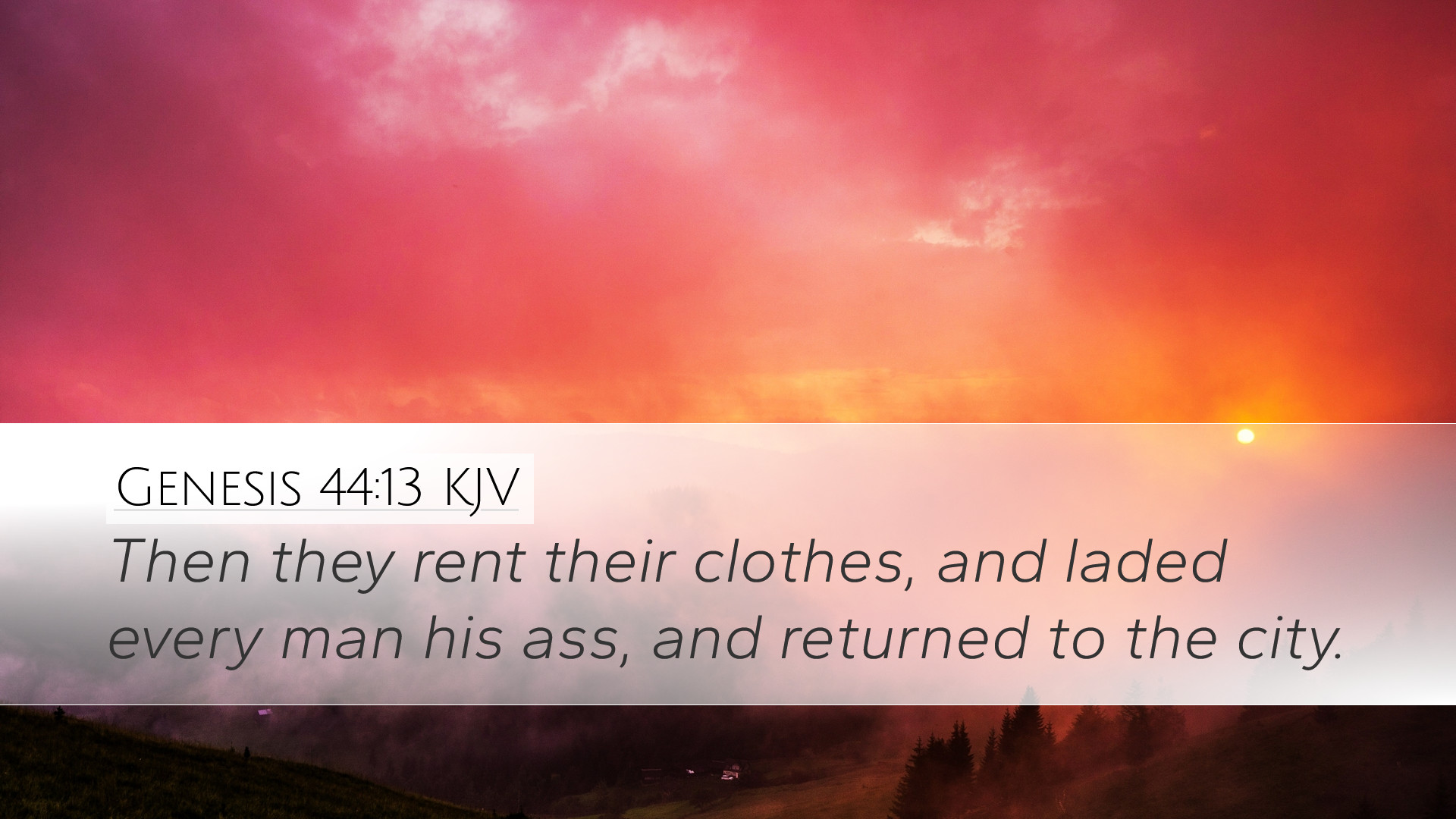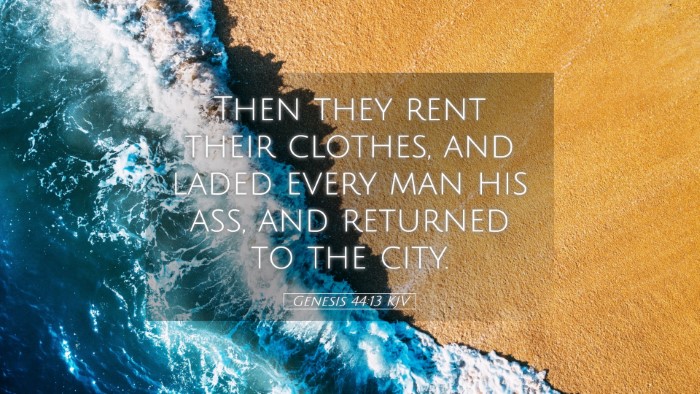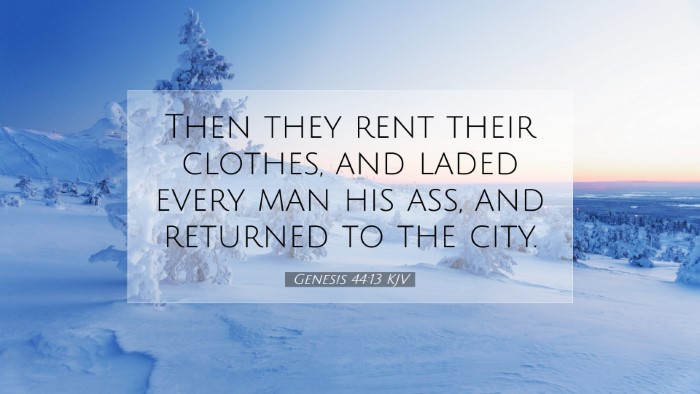Genesis 44:13 Commentary
Verse Context: Genesis 44:13 reads: "Then they ripped their clothes, and each man loaded his donkey, and they returned to the city." This verse comes at a pivotal moment in the narrative of Joseph and his brothers, illustrating the emotional turbulence and the high stakes underlying the story.
Introduction
This verse serves as a critical juncture in the larger narrative of Joseph's interactions with his brothers. It reflects their despair upon realizing their brother Benjamin is accused of theft, which in turn invites deeper reflections on themes of guilt, repentance, and familial bonds. Commentaries on this passage provide a rich tapestry of insights, exploring the theological, emotional, and moral implications of this action.
The Meaning of the Rending of Garments
The act of tearing their garments is highly significant. Matthew Henry notes that this action was a customary expression of intense grief or distress in ancient cultures. The brothers' immediate response to a perceived injustice against Benjamin reflects their deep-seated loyalty and concern for family. It demonstrates a shift in their character, moving from earlier betrayal of Joseph to now showing protective instincts over his favored brother.
Albert Barnes elaborates on this by emphasizing the significance of the garments themselves. In the cultural context of the time, clothing symbolized one's identity and status. By tearing their clothes, the brothers were not only expressing sorrow but also demonstrating their inner turmoil and the disruption of familial integrity caused by the situation.
Symbolism of the Donkey
The act of each brother loading their donkey can be interpreted on several levels. Adam Clarke suggests that the donkey served as a symbol of burdens and the weight of guilt that the brothers carried. The return to the city signifies a re-confrontation with their past actions and the emotional burdens they must now face.
The donkey, often seen as a humble beast of burden, may also reflect the brothers' return to simplicity and the humble state of their hearts. Unlike their earlier journey, which was motivated by envy and cruelty toward Joseph, their current journey is underscored by a desire to protect and redeem Benjamin.
The Brothers' Transformation
This moment marks a significant turning point in the character development of the brothers. Matthew Henry argues that their reaction is emblematic of true repentance. Their grief is not merely because of Benjamin's plight but also reflects their previously hidden guilt regarding their treatment of Joseph.
During their earlier interactions with Joseph, the brothers had shown a lack of empathy and understanding. Now, as they react dynamically to the accusation against Benjamin, it illustrates a profound transformation in their hearts. They are beginning to understand the weight of their actions and the necessity of protecting one another.
Implications for Pastoral Work
For pastors, the themes of confession and reconciliation in this passage are rich for exploration. The brothers’ actions can serve as a model of how to approach guilt and accountability within the community of faith.
- Confronting Past Transgressions: The initial guilt of the brothers echoes the common struggles within congregations—acknowledging past sins is the first step toward healing.
- Family as a Reflection of Christ’s Love: The shift from jealousy towards protective love can be a parable for how Christian communities ought to treat one another, embodying the love of Christ.
Theological Reflections
The theological implications of Genesis 44:13 extend beyond the narrative itself. Albert Barnes observes that this reflects the overarching theme of providence throughout Genesis. Joseph's orchestration of these events serves not only to test his brothers but also to fulfill God’s promise and purpose for Israel.
This passage invites theologians to consider how trials and distress are often gates to spiritual growth and understanding. The brothers' tears and subsequent actions prompt a reflection on how God uses our moments of crisis to lead us towards repentance and reconciliation.
Conclusion
Genesis 44:13 presents a rich field for exploration regarding human emotion, divine providence, and the potent themes of guilt and redemption. By studying this verse, students, clergy, and theologians alike can glean insights into the nature of true repentance and the importance of familial loyalty.
As seen through the lenses of Henry, Barnes, and Clarke, the narrative invites believers into a deeper engagement with their own lives, encouraging them toward constructive reflection on their relationships—both with God and with each other.


